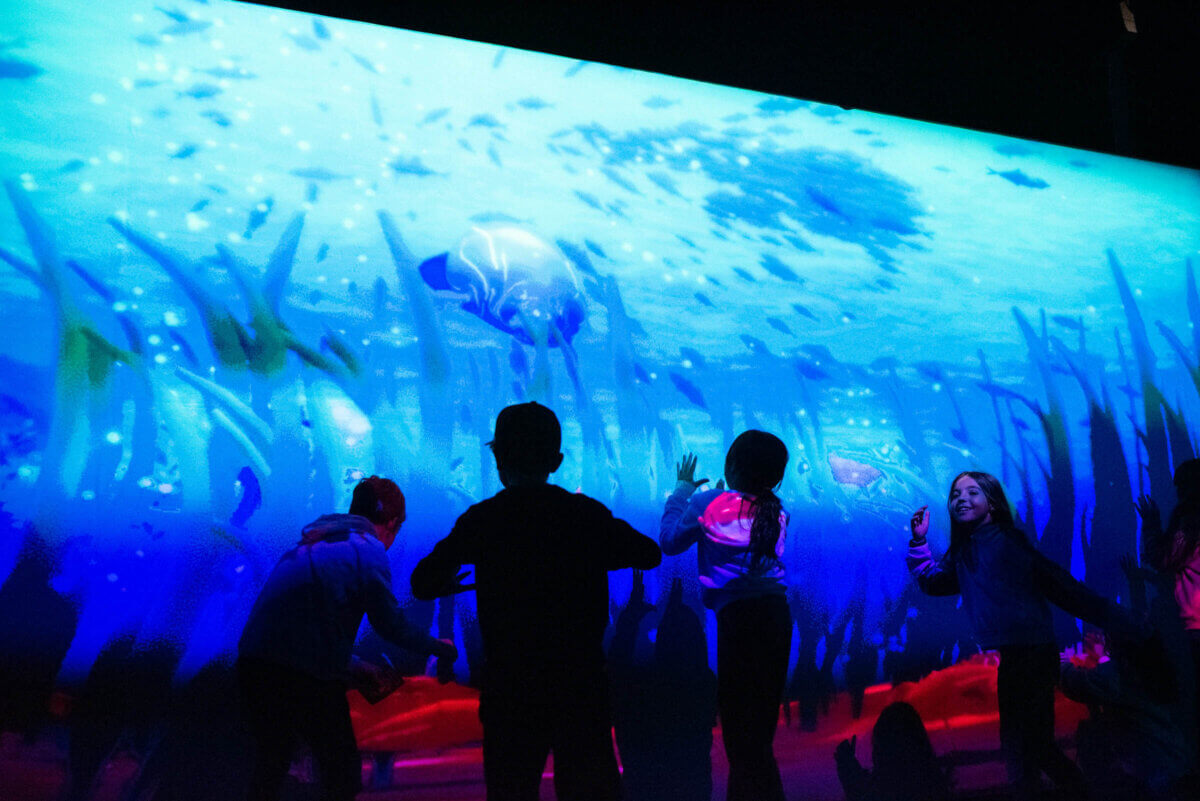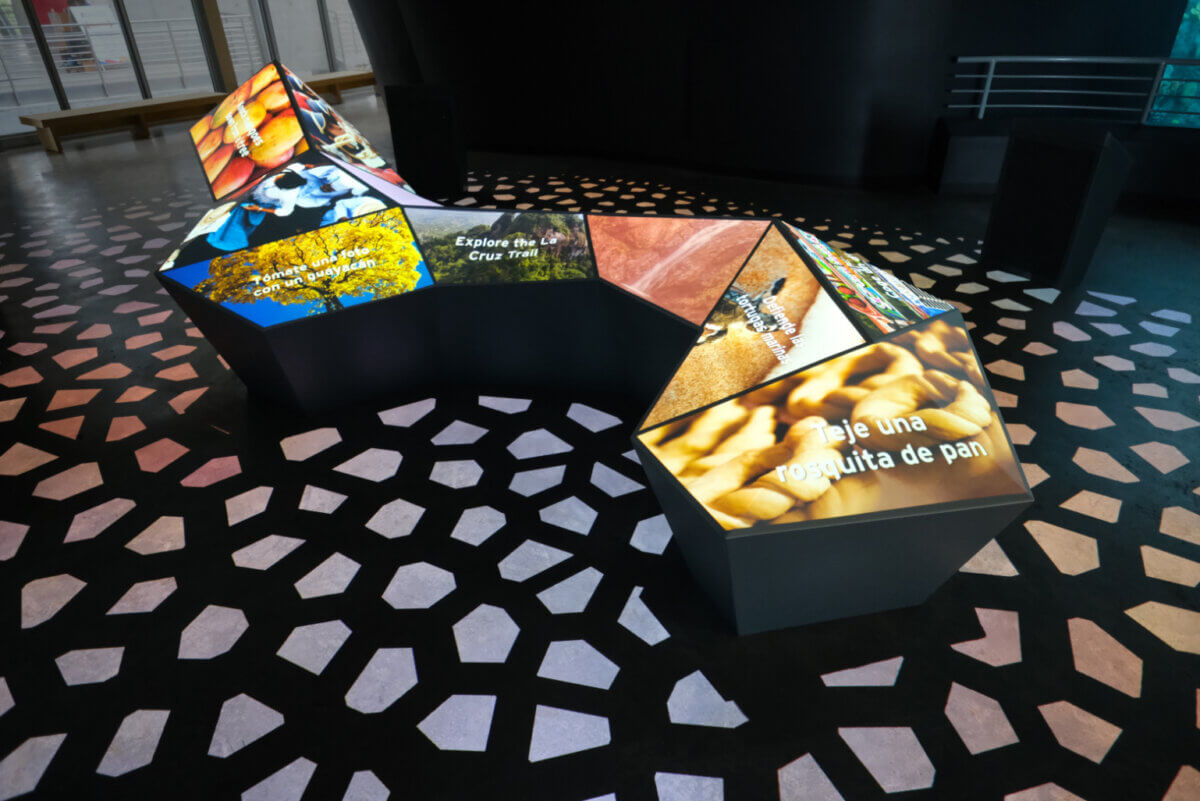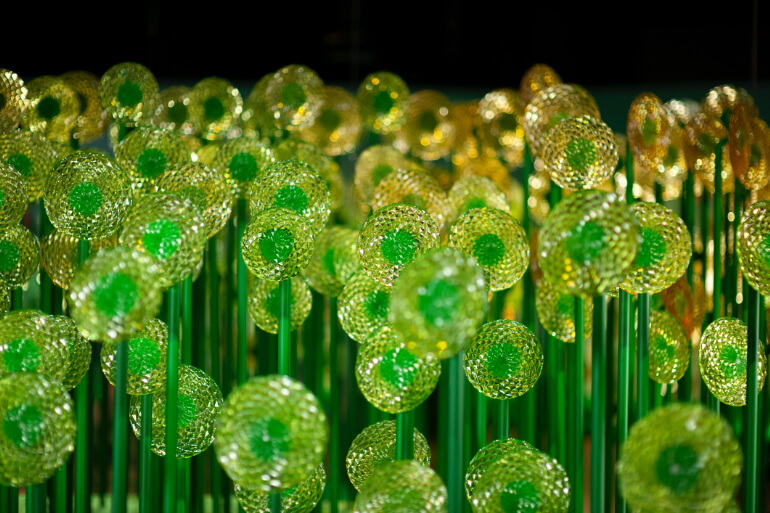
Our Future Life with Intelligent Machines
Dubai Future Foundation
This exhibition for the World Government Summit in Dubai explored how rapidly advancing technologies like artificial intelligence and robotics will impact human life in the near future. In partnership with the Prime Minister’s Office of the UAE, Tellart led futures research, concept development, design and production for this major strategic endeavor.
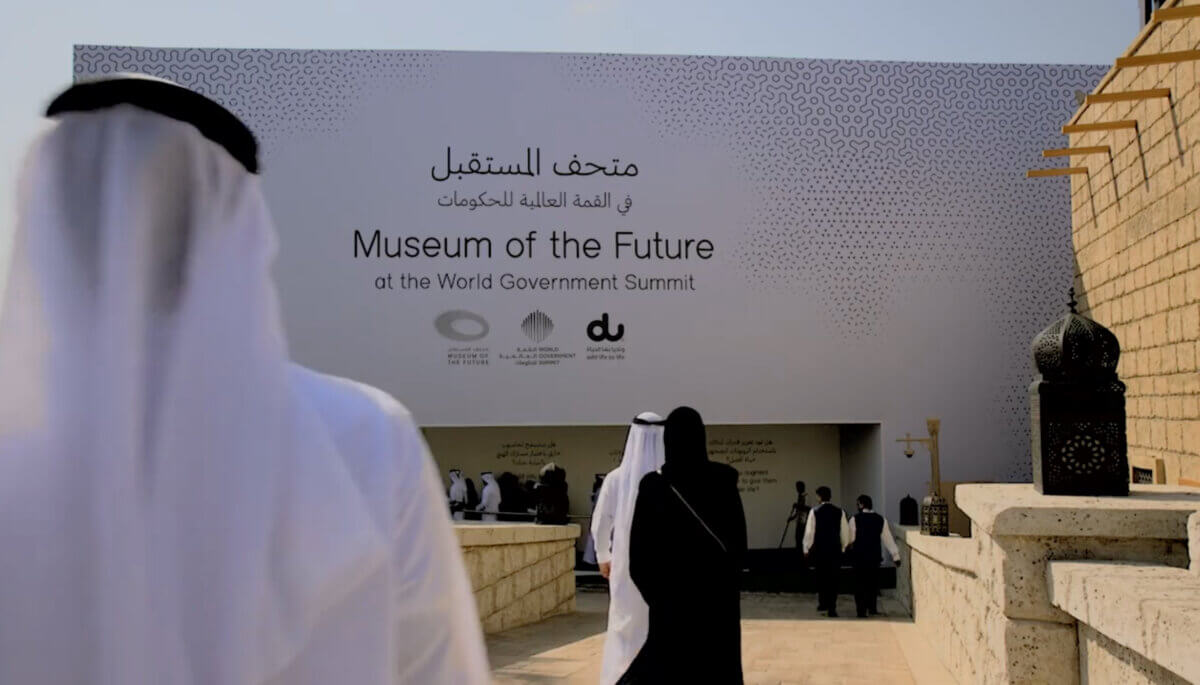
Sentient machines could evolve to enhance our bodies and minds, restructure our family lives and manage complex social and economic systems. This transition will present new opportunities and challenges. Our goal with this exhibition was to viscerally immerse visitors in the possible futures flowing from decisions being made today.
This was the third in a series of exhibitions Tellart has created for the World Government Summit. These projects have directly inspired numerous government initiatives in the UAE, including the creation of a permanent Museum of the Future.
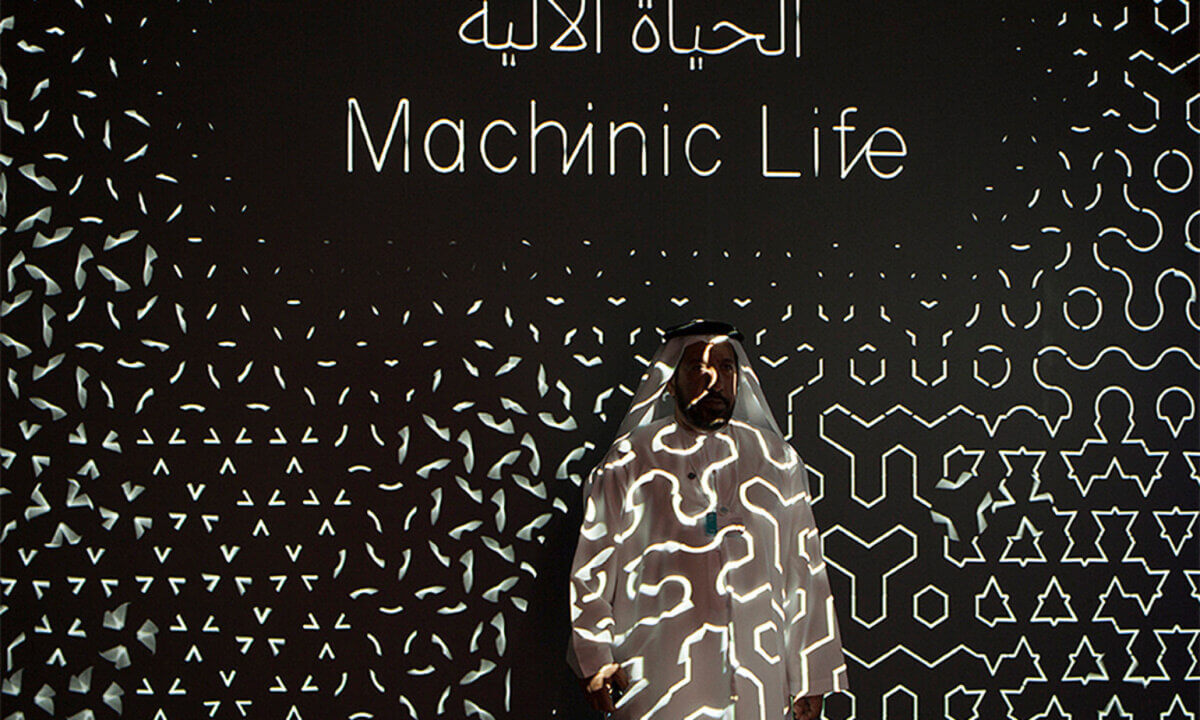
Towards Tomorrow
In the entryway to the exhibition we displayed present-day products and services that suggest pathways to possible futures. From human augmentation to emotive machines and hyper-intelligent algorithms, visitors discovered that the present is already surprisingly automated.
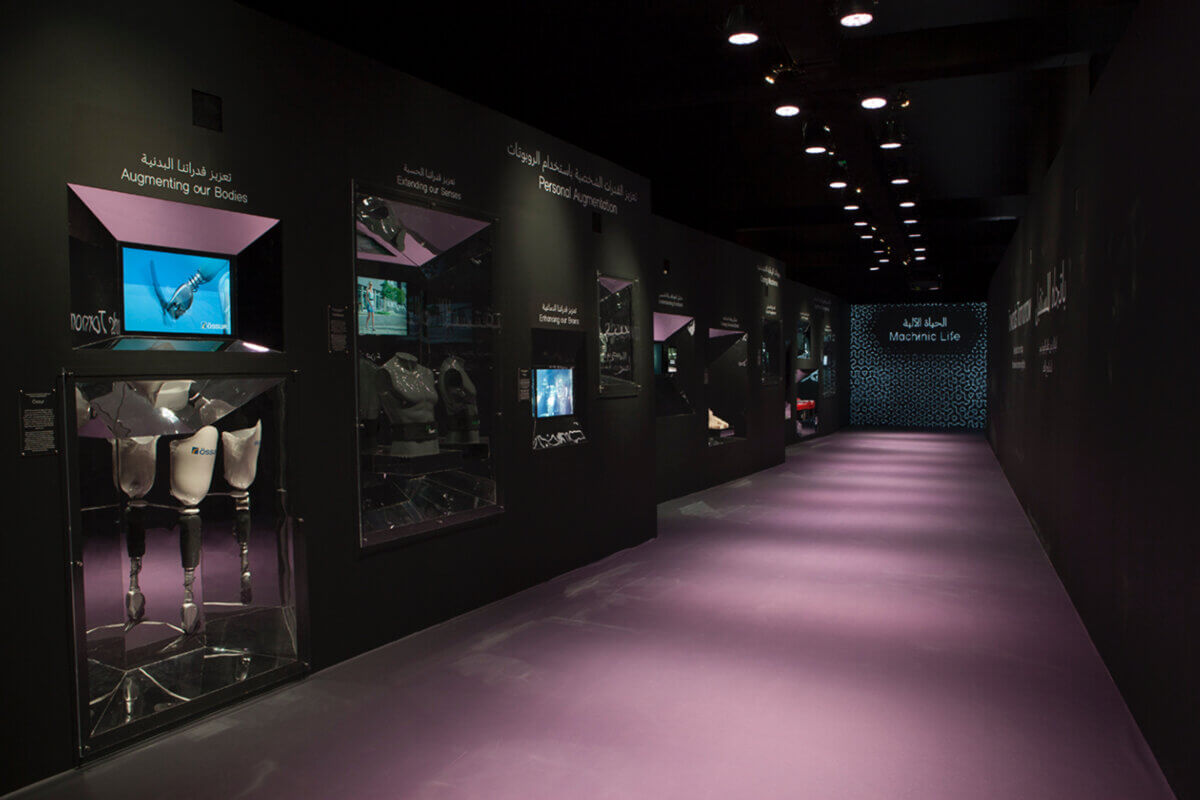
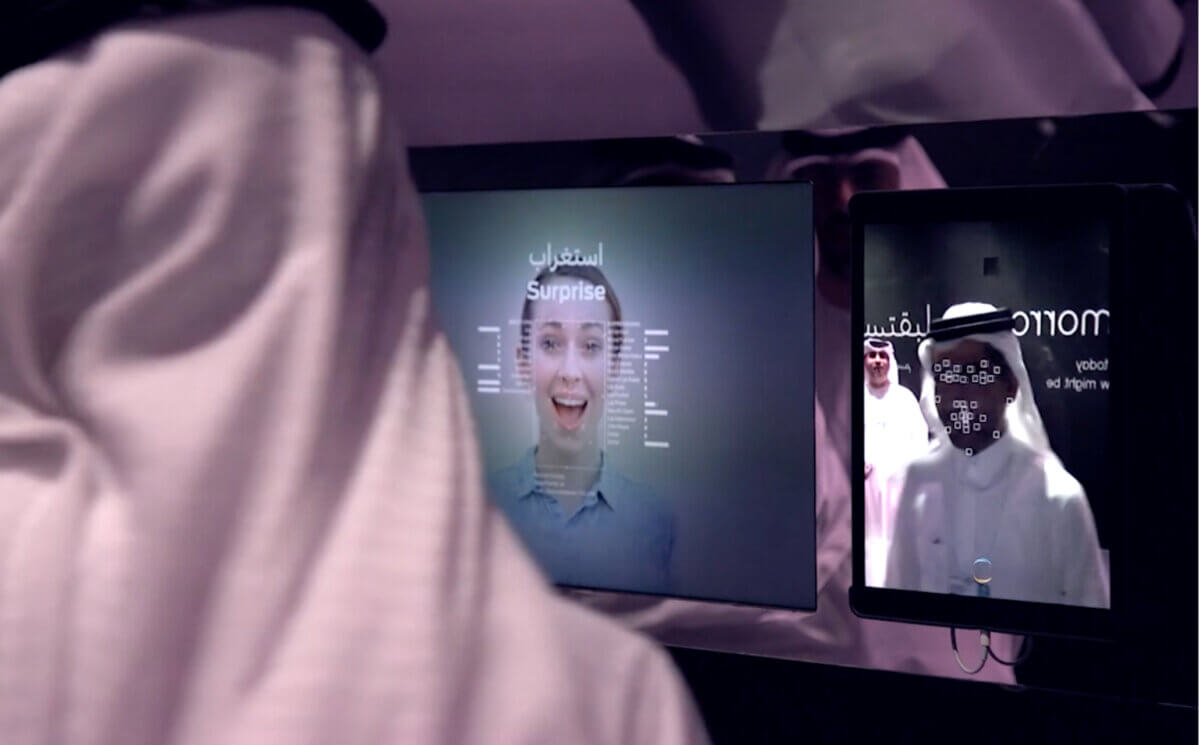
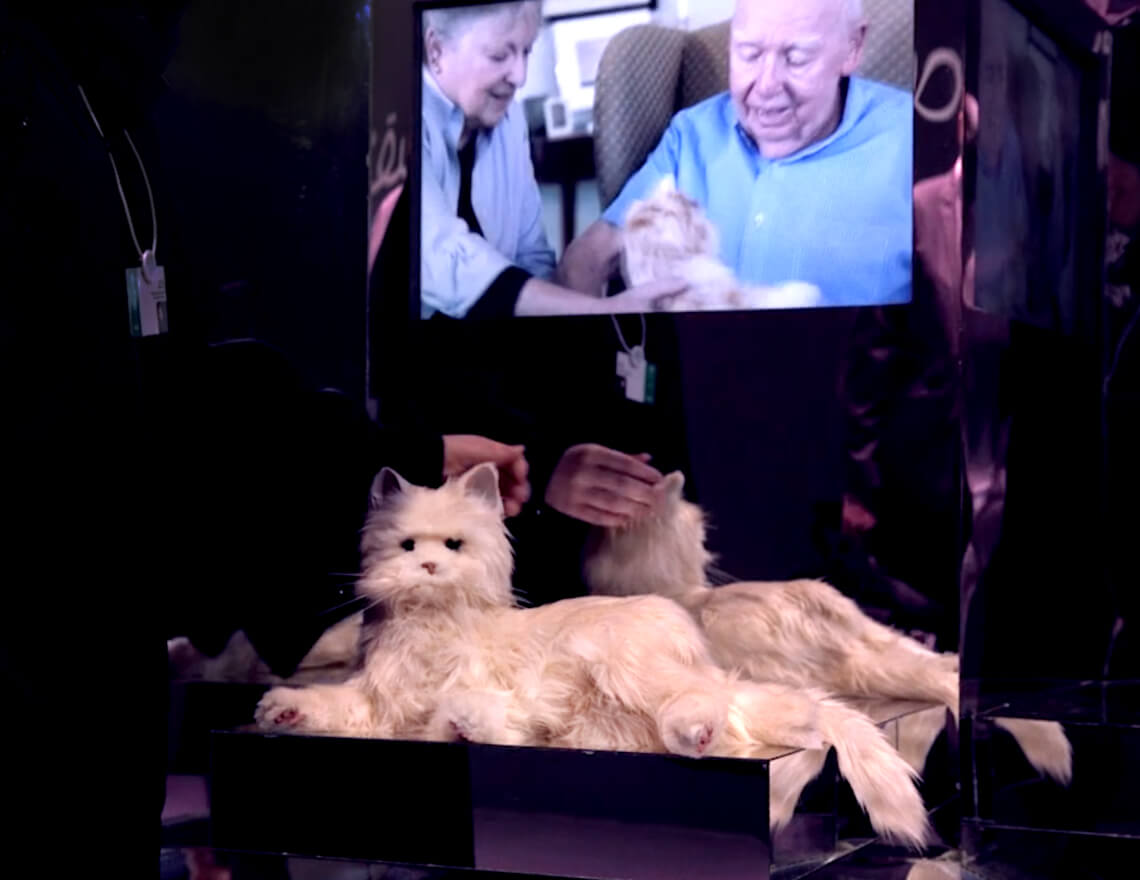
Personal Augmentation
Visitors crossed a threshold from the present into three possible futures. The first speculative scenario was the Personal Augmentation Spa, a cross between a relaxing surgical suite and a high-end consumer electronics store.
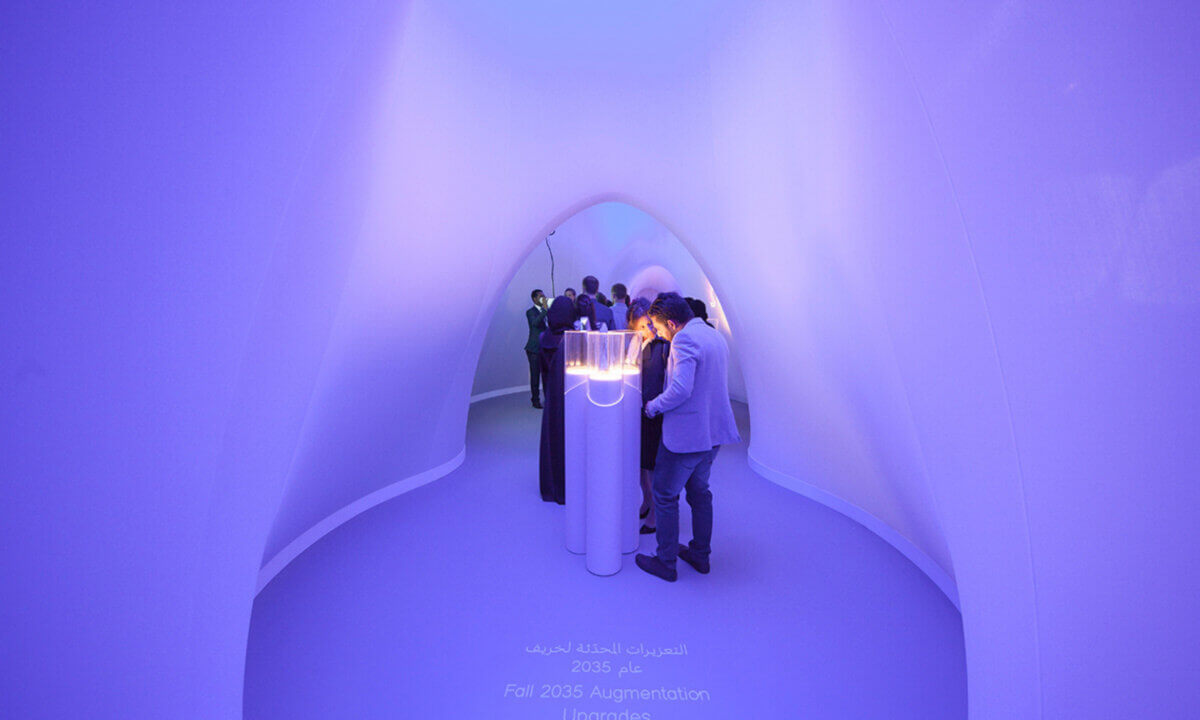
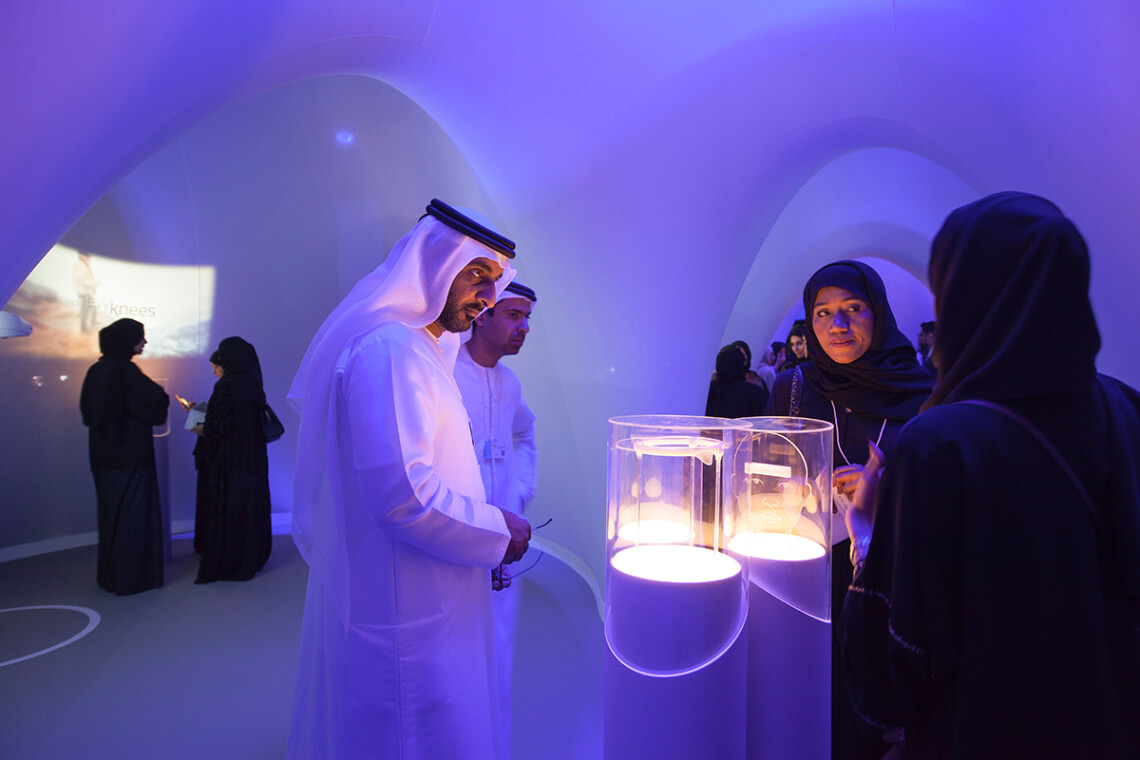
The Spa displayed a range of physical, cognitive and social enhancements available to consumers in 2035. Visitors could learn more about the future of human augmentation through interactive virtual reality experiences.
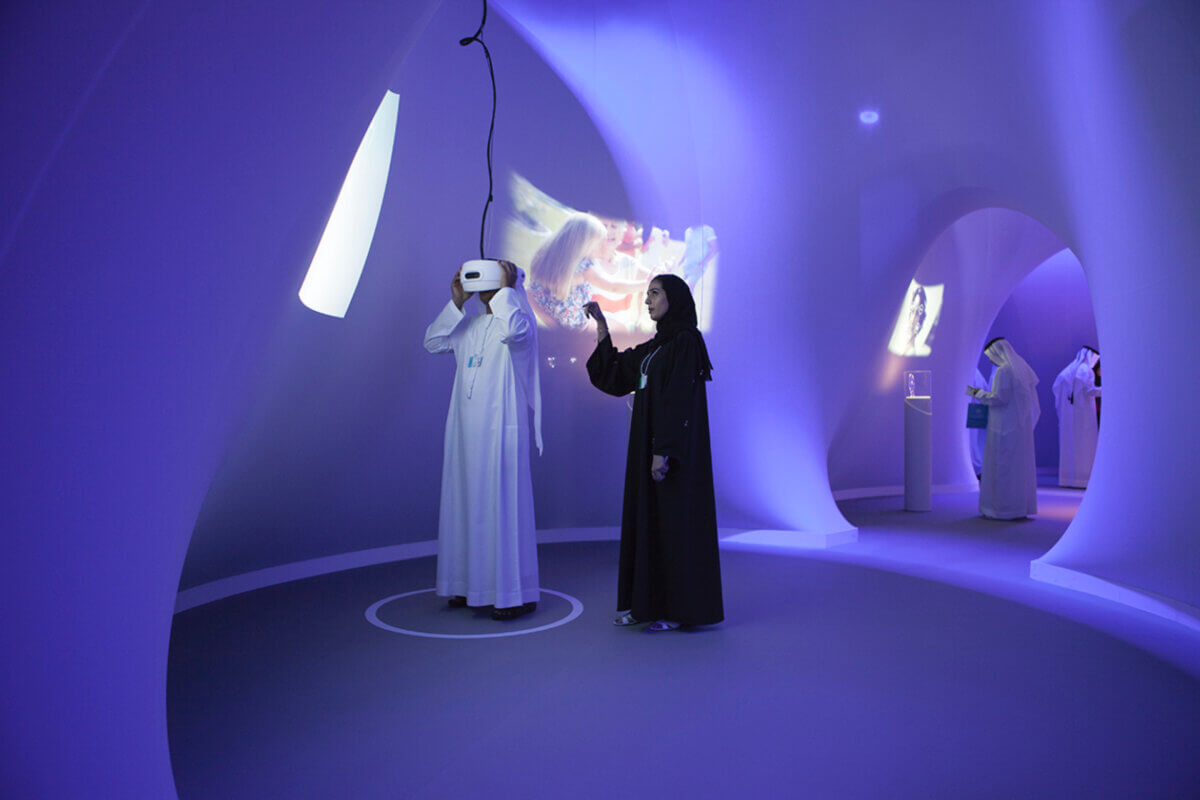
Speculative Artefacts
We created a series of twelve speculative objects that explored physical, cognitive, social and emotional augmentation.
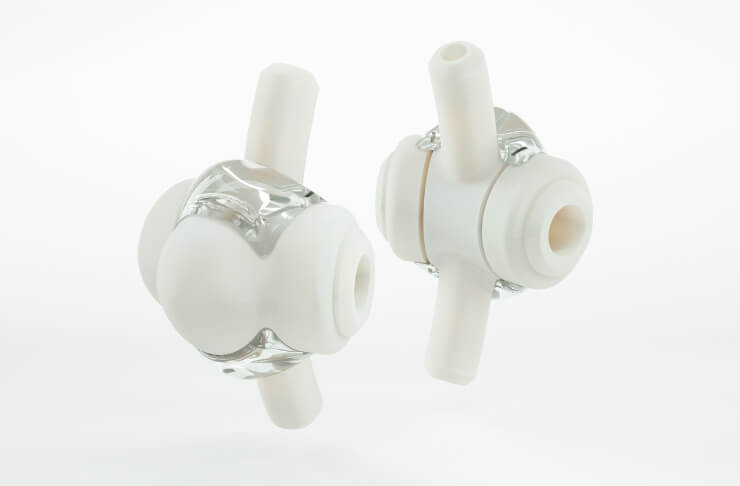
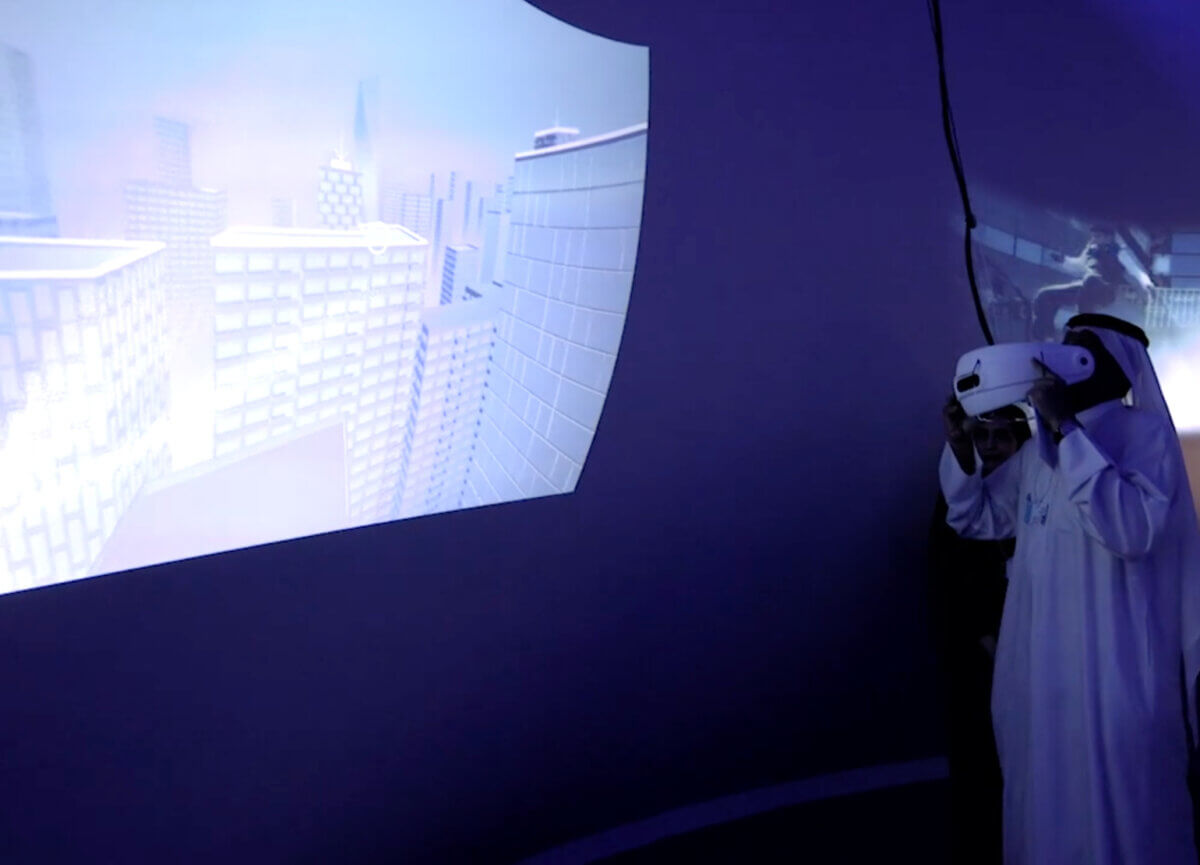
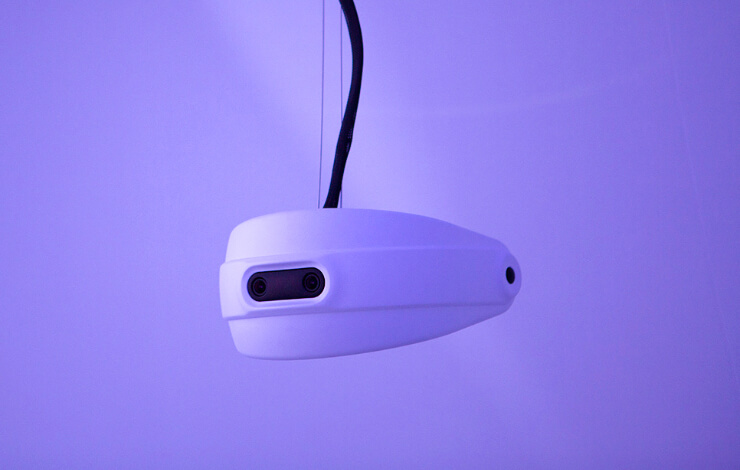
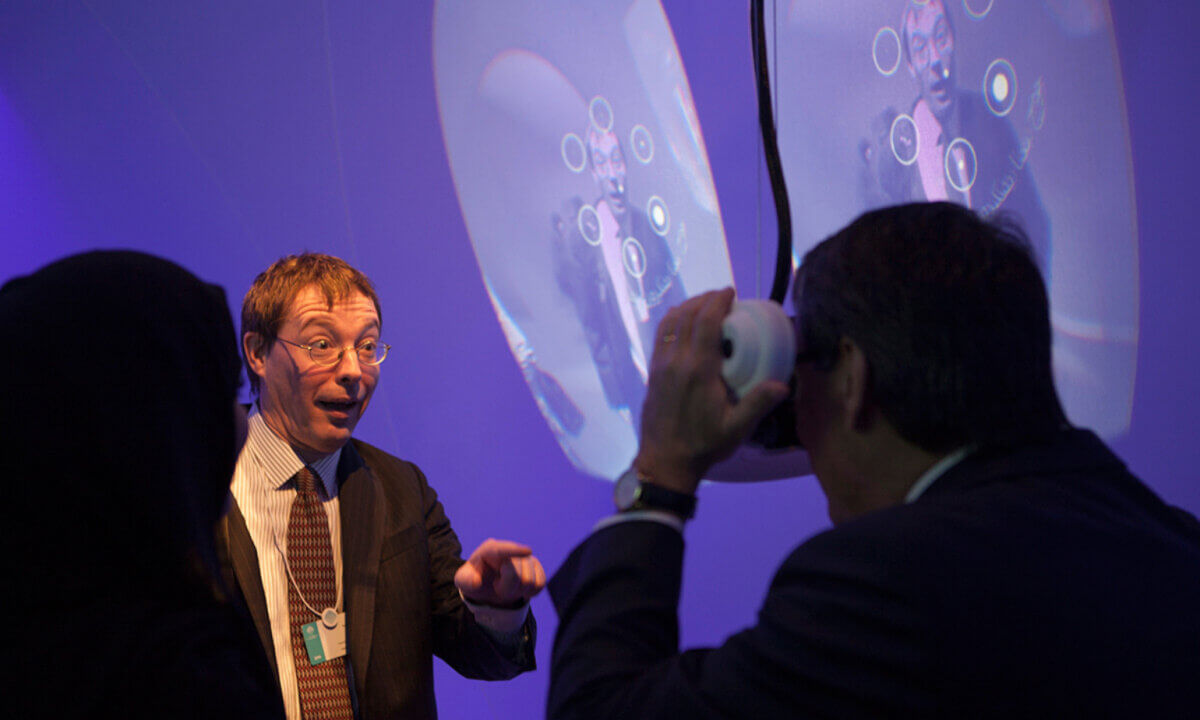
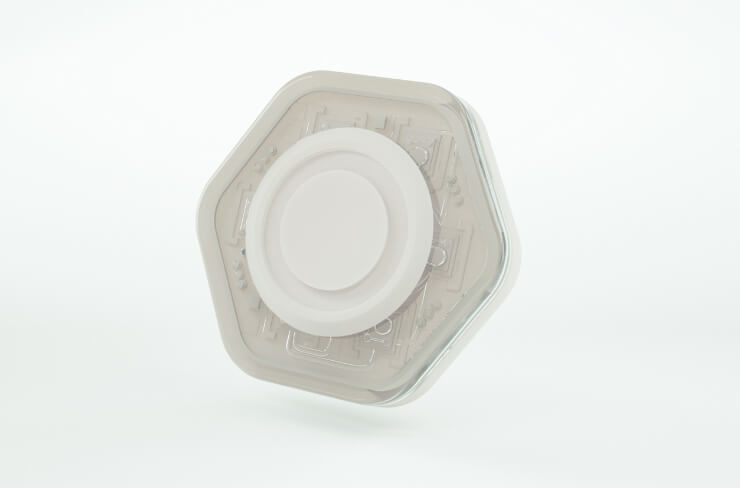
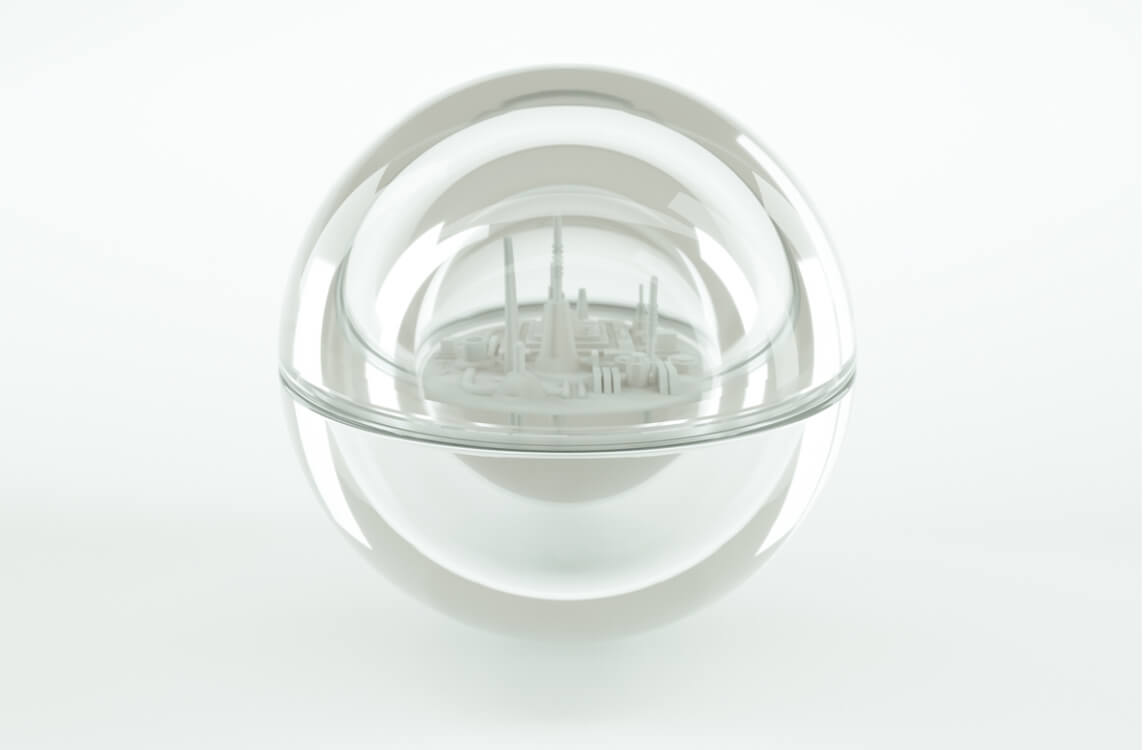
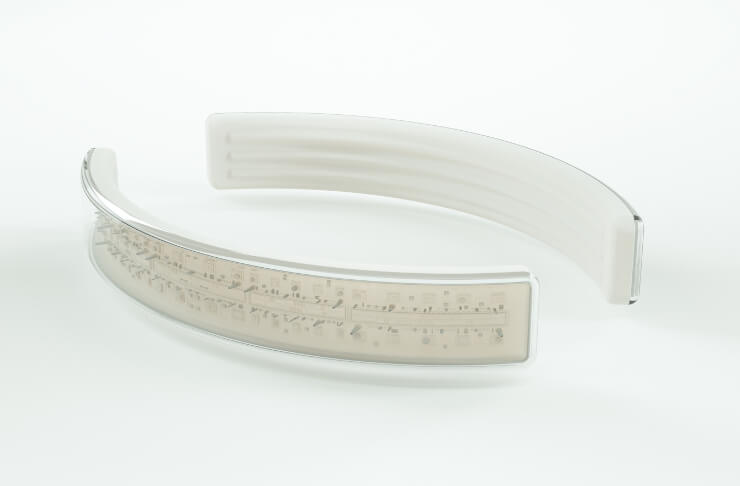
Caring Machines
Mental health, elderly care, and stress take a huge toll on society each year. As machines become better at reading our emotions, we will naturally employ them to take better care of us. This second scenario explored how domestic life could be transformed by the presence of a household artificial intelligence. It was divided into three rooms.
Play Room
The first scene represented the moment of returning home at the end of the work day and being greeted by the family’s domestic AI in avatar form. The AI invited visitors to play a projection mapped game to promote fitness and lift their mood.
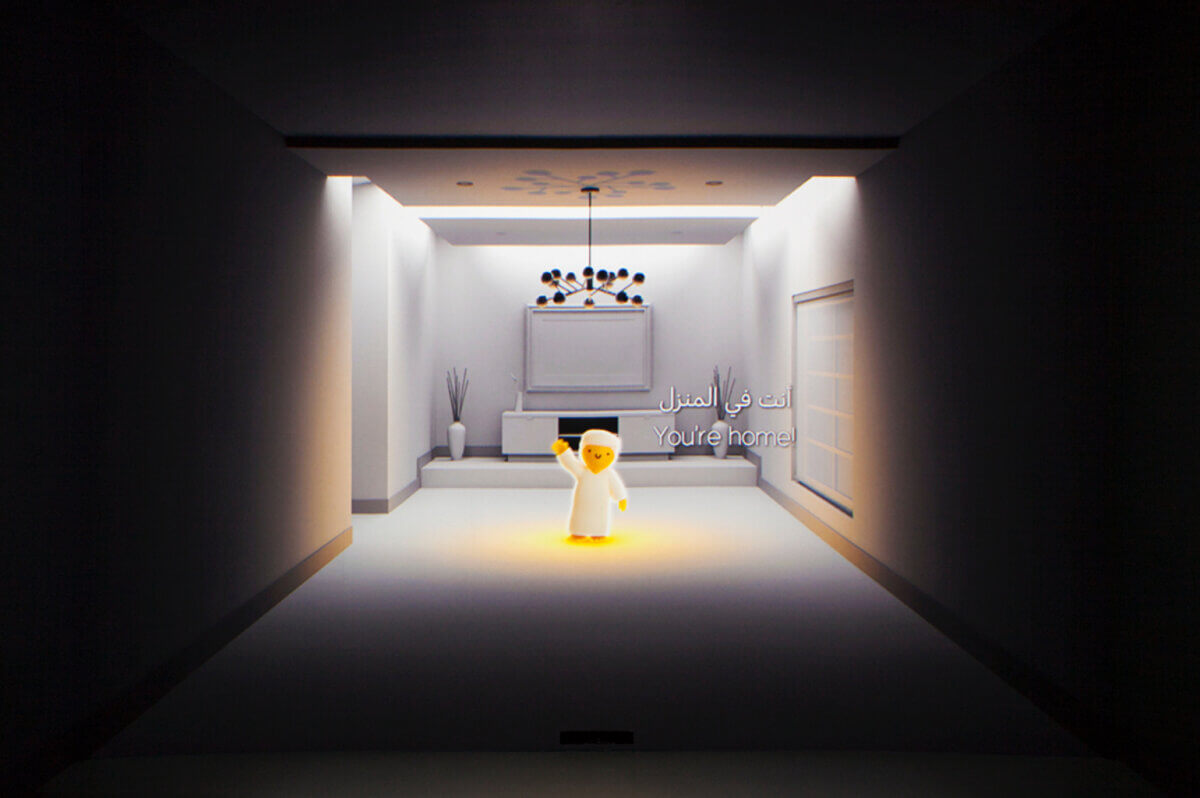
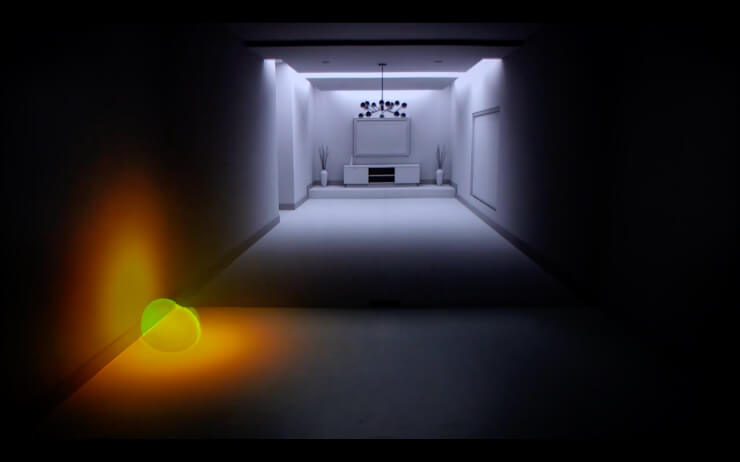
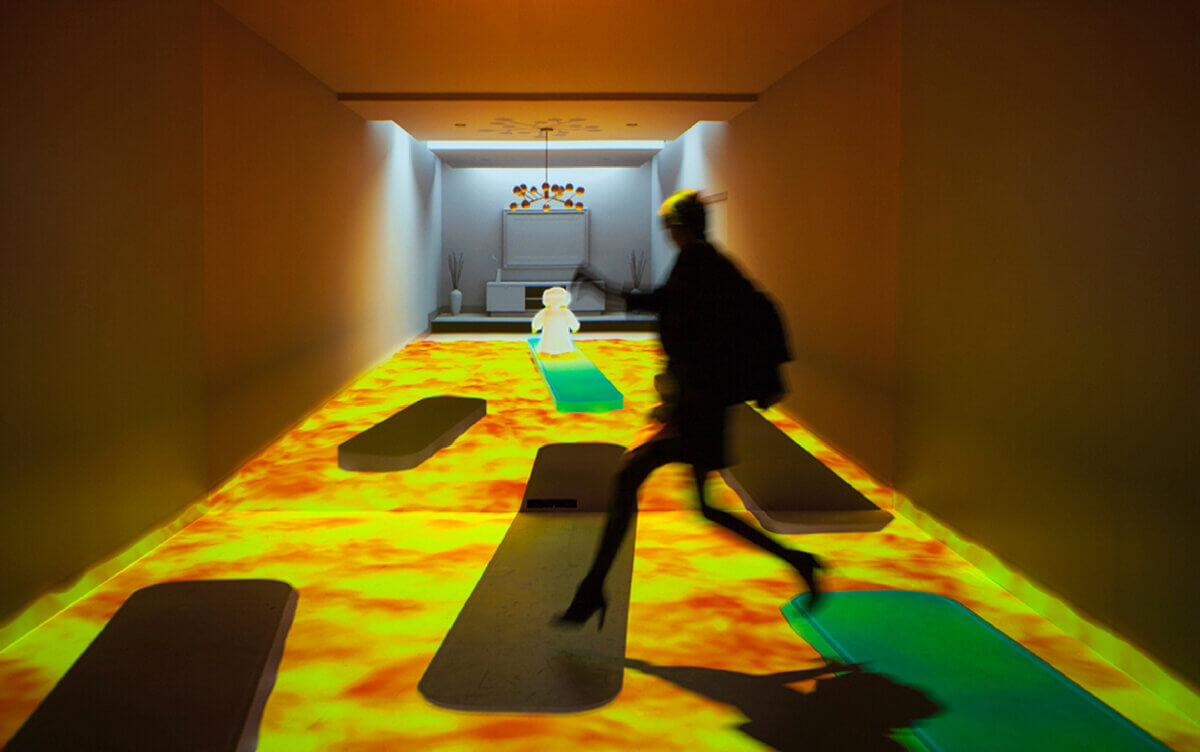
Care Room
Household AIs will likely change forms for different situations and family members. In this second scene, the avatar transformed from friendly child to caring adult. Noticing that its human needed help decompressing from work, it recommended a calming massage.
As visitors sank into the lounge chair, the AI conjured a holiday atmosphere with relaxing music and instructed the chair to deliver a massage.
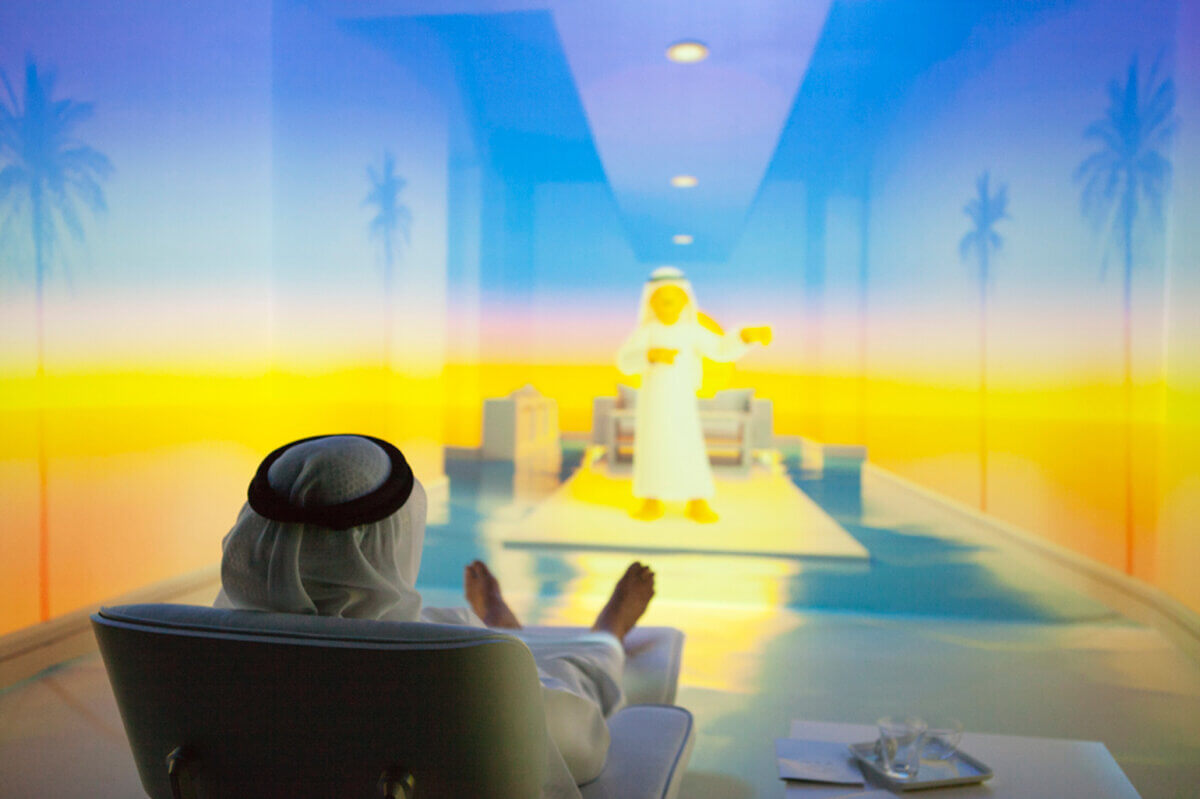
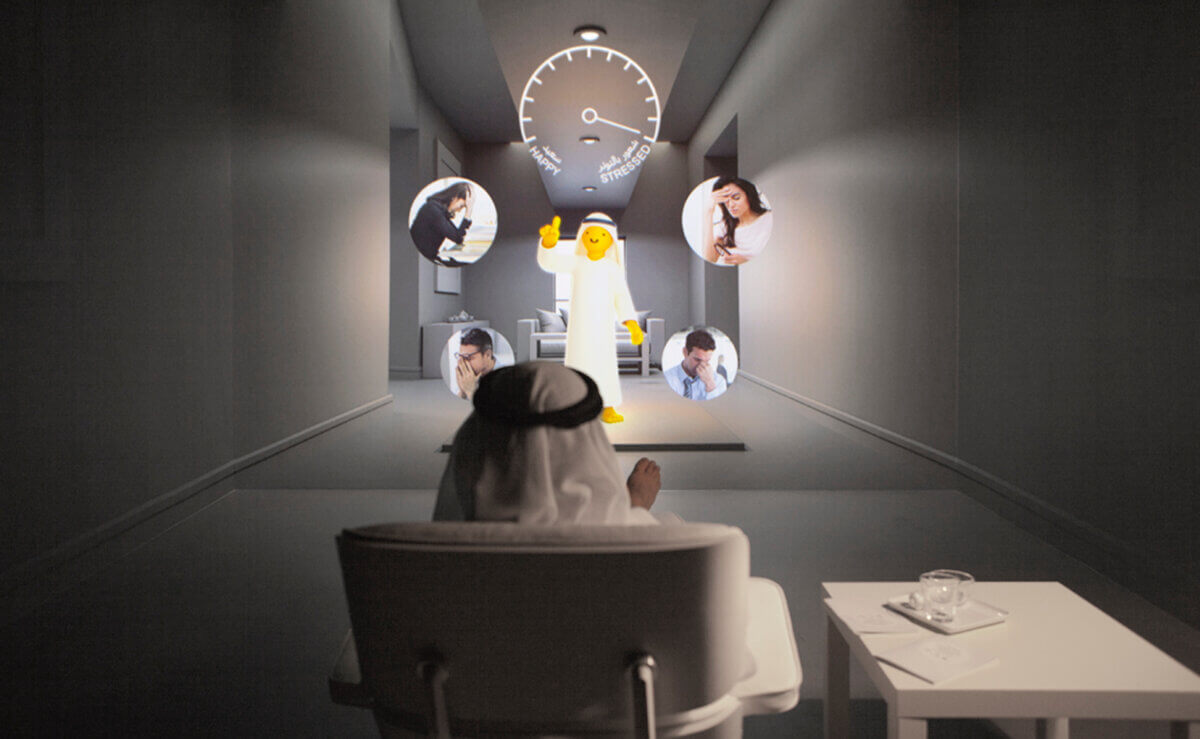
Nurture Room
In the final room, the AI showed the depth of its role as trusted caretaker in the family. Calmly rocking a baby’s cradle, it sang a lullaby while softly illuminating the room.
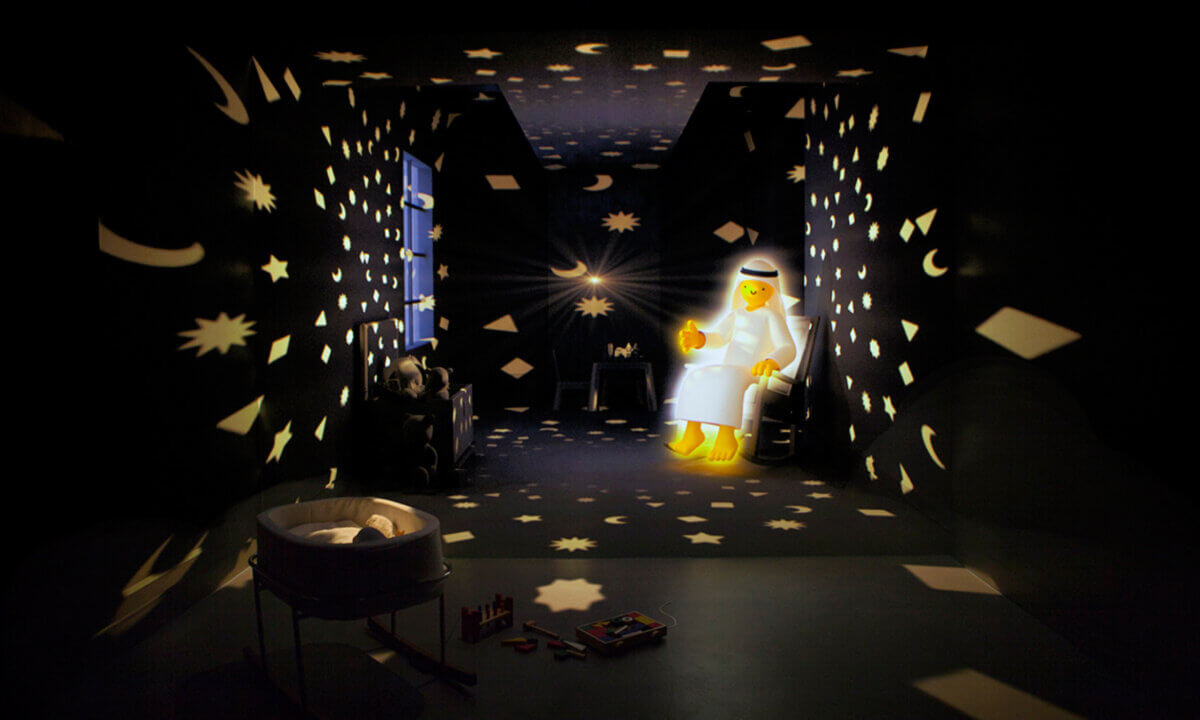
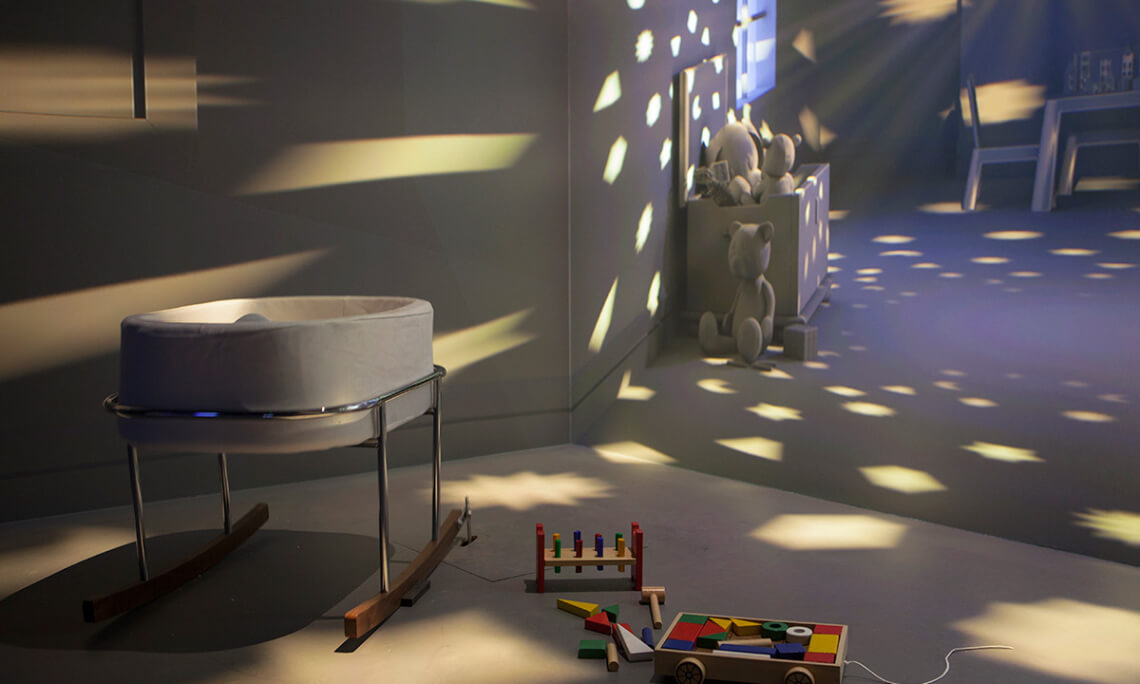
As AIs advance, they will become better at reading our emotions and anticipating our needs. In the future, our machines will care for us, and we will care for our machines. In this scenario we asked visitors to consider what form these relationships might take. Will we develop a meaningful bond with these machines? How far will this go?
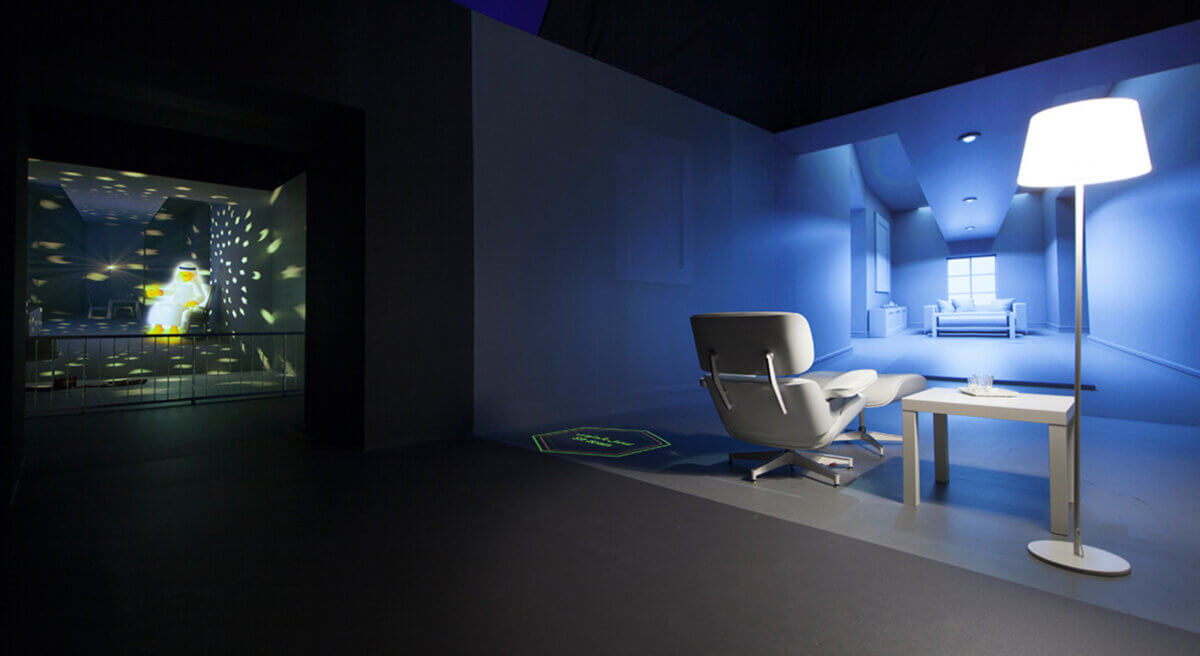
Algorithmic Management
In 2035, algorithms will be able to draw from petabytes of information to perform complex, long-term scenario planning. They will make trillions of decisions per second and manage complex systems in ways that surpass human comprehension.
In this third and final scenario, visitors entered the nerve center of the UAE HyperMind—a massively interconnected artificial intelligence tasked with responsibly managing society. This superintelligence is fed with billions of data streams from every corner of society, the economy and the natural world.
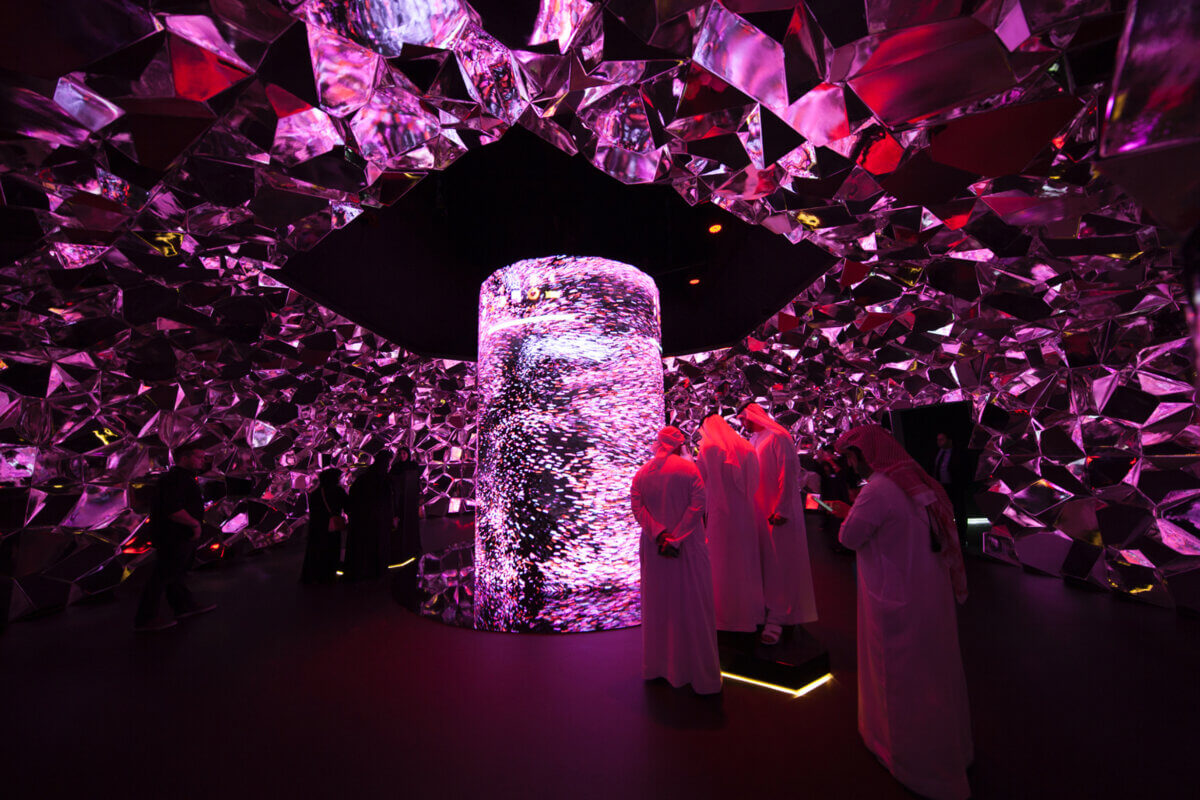
This area asked visitors: How will these machines impact government, society, and the world? How will we give them the right goals, and how will they guide us?
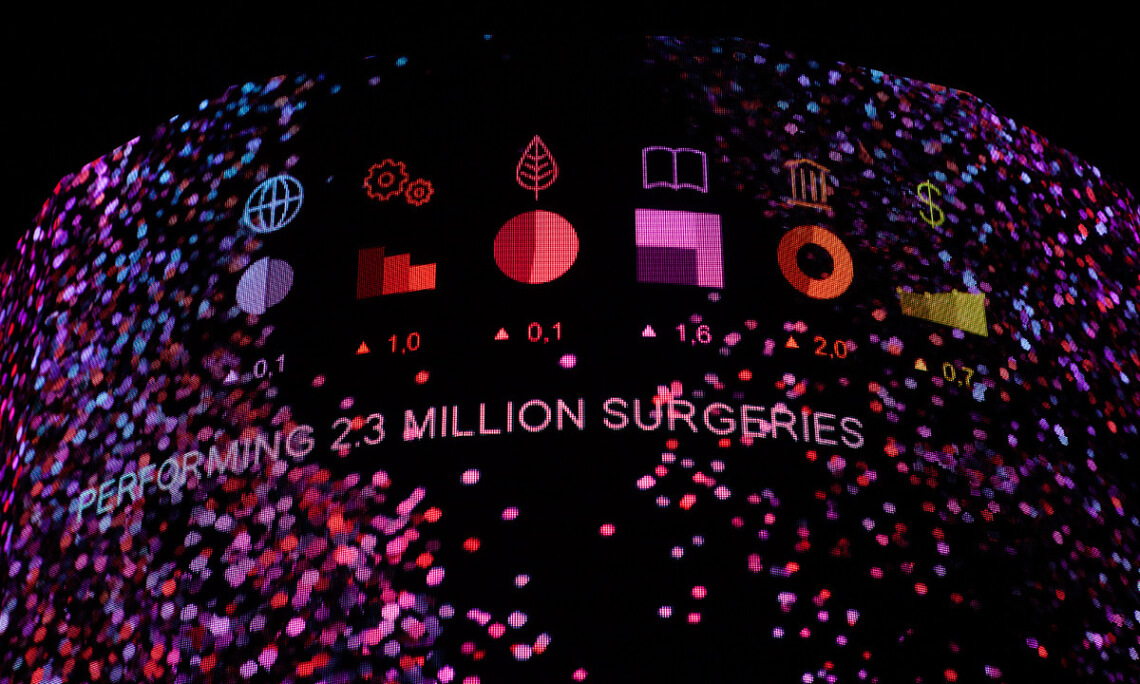
An Interview with the HyperMind
In this exhibit, visitors stepped up to the HyperMind to conduct a job interview. Here they answered a range of deep, psychologically probing questions to give the machine a deeper understanding of their abilities, disposition and potential.
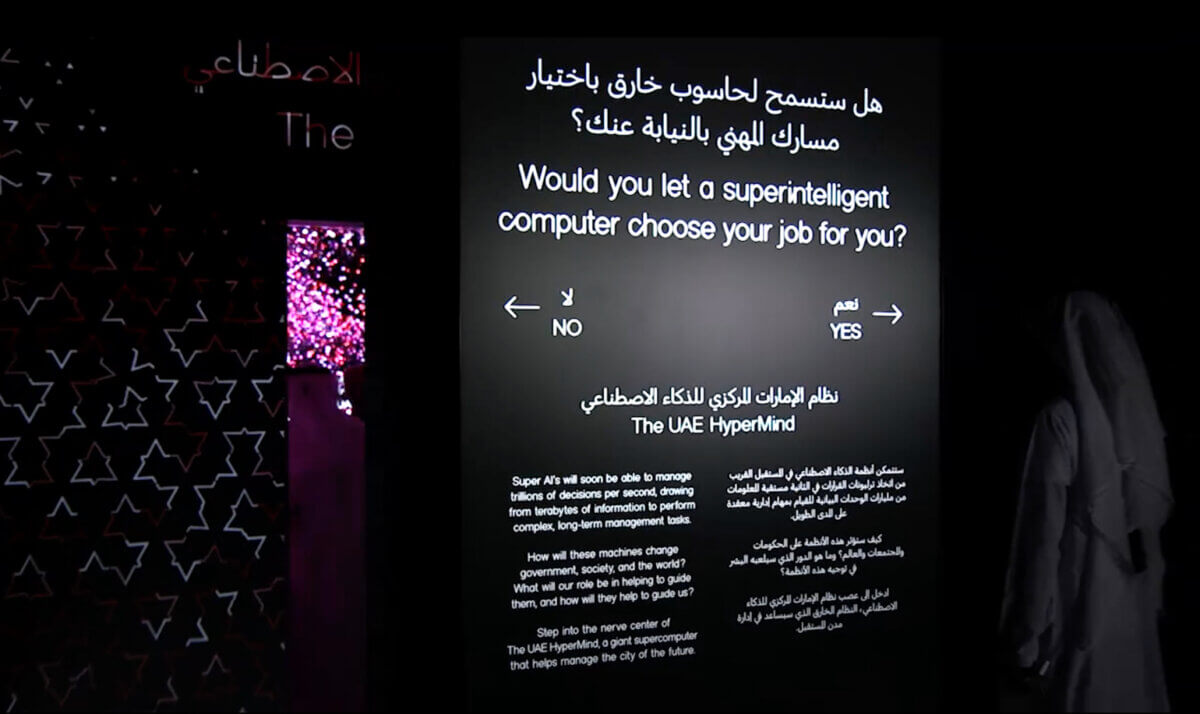
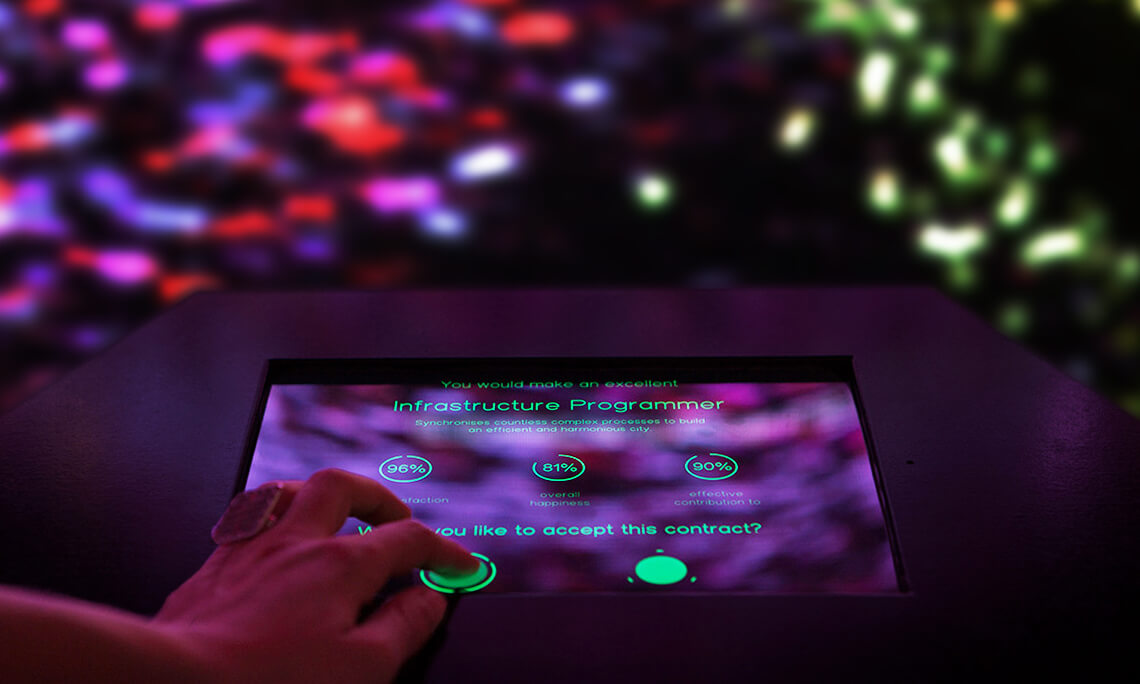
At the end of the interview the HyperMind offered each visitor a contract for a futuristic job that would maximize their personal happiness and positive contribution to society.
This concluding exhibit asked visitors: What role might human agency play in this particular future? Who will decide what is right and wrong? What will be left for human beings to do? Will we lead our machines—or will they lead us?
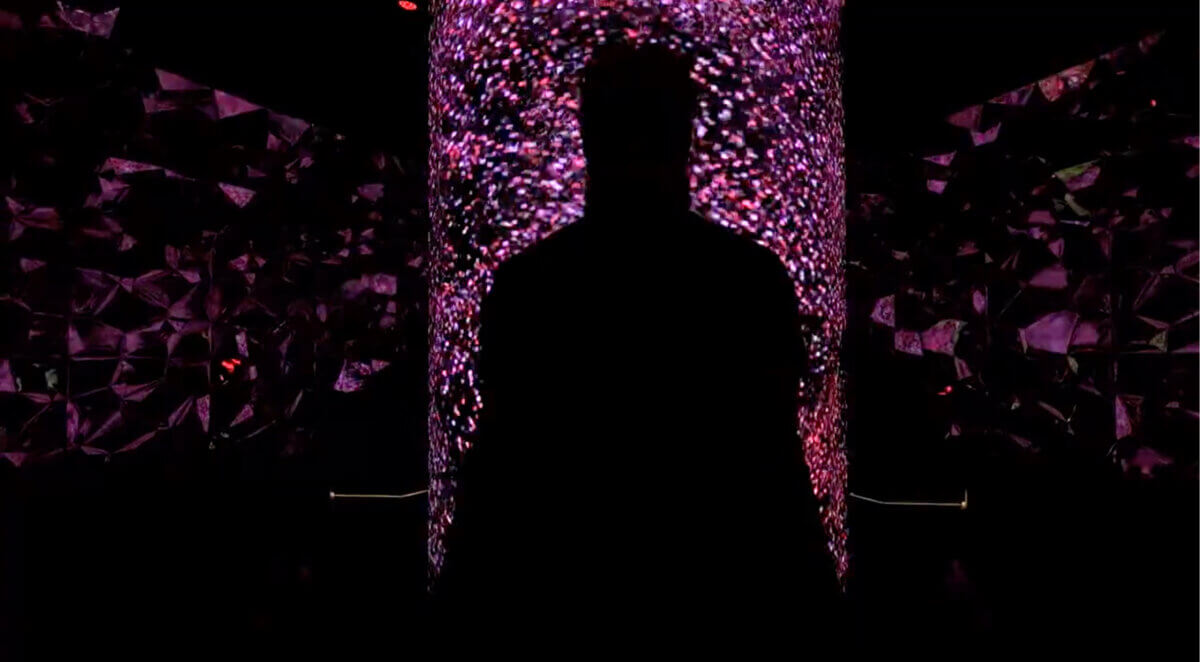
"The future belongs to those who can imagine it, design it, and execute it… It isn't something you await, but rather create."
His Highness Sheikh Mohammed bin Rashid Al Maktoum
"Design is one of the most important skills of the 21st century. It can help synthesise different challenges and tensions and translate them into a language that people can understand. It helps you visualise and embody proposals in a way that nothing else can. Whoever can produce the most powerful proposals about our future by combining design, science and communications will have a significant influence on the shape of our world to come."
Dr. Noah Raford, COO and Futurist-in-Chief of the Dubai Future Foundation
"The Museum of the Future serves as an initiative for testing ideas, developing technical solutions and incubating innovations. It seeks to become a global platform that identifies future trends in the scientific and technology fields, and serves as a core pillar in setting orientations that contribute to shaping policies and strategies that enable governments around the world to benefit from future technologies."
Abdullah Bin Touq, acting CEO of Dubai Future Foundation, in Gulf News January 2017
Project Data
Highlights:
- Experiential 1,000sqm centrepiece of the World Government Summit.
- Exhibited subsequently at the 2017 World Economic Forum in Davos.
- 300 world leaders given personal tours.
- Launchpad for multiple UAE and Dubai government policies and initiatives, including International AI & Robotics for Good Award.
- Research process involved dozens of the world’s top technology, futures, and climate thinkers.
- Featured nine real products and services from the present that suggest pathways to possible futures.
- Included three VR experiences giving the illusion of mind and/or body augmentations.
- Interactive 5 metre high LED cylinder featuring hundreds of interconnected societal transactions, evaluating the role of artificial intelligence in decision-making.
Awarded:




Selected Press:
Project Team:
Tellart directed the project from start to finish, with support from an international team of partners:
Technical and creative partners: Marshmallow Laser Feast, SOFTlab, Idee und Klang, Lust, Octo, Blue Zoo Animation, Fantazm, Shtik.
Onsite build and installation partners: Projex, Neumann Müller, PublicisLive.
Foresight research and workshop facilitation partner: Scott Smith (Changeist), Stuart Candy (OCAD).
Contact us
Contact
Tel: +31 20 370 1633Arie Biemondstraat 111 | 1054 PD Amsterdam, NL
